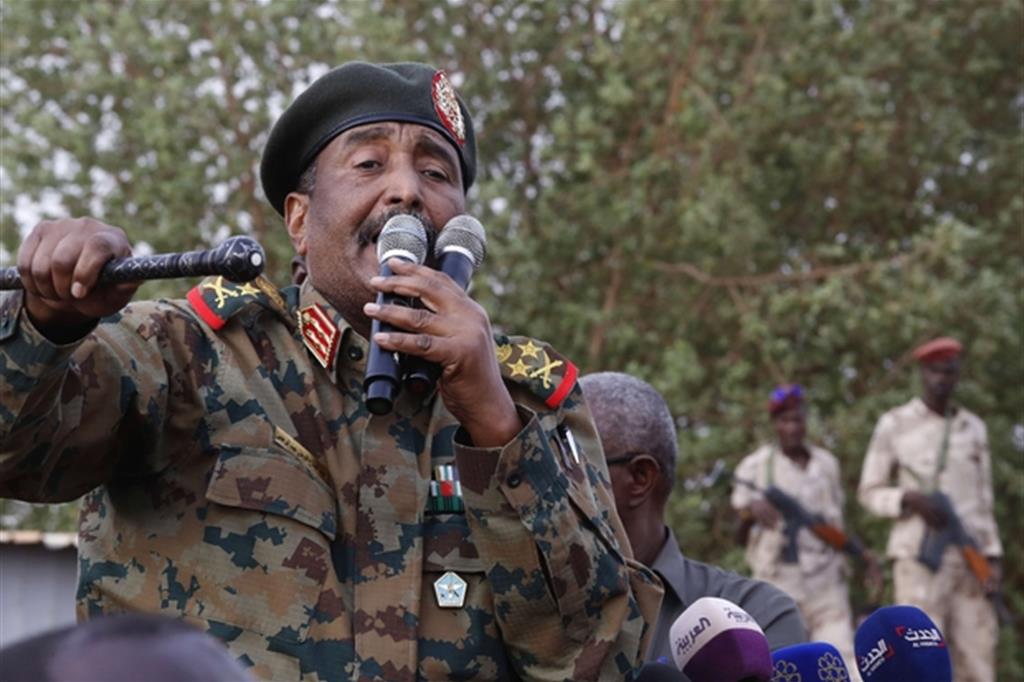In Bukavu, a woman protests in the streets against the authorities; the police shoot and…

What does the Future Hold for Sudan After Signing the Agreement with Addis Ababa?
The waters of the White Nile flow calmly until it merges with the Blue Nile. The after-effects of the dry season reduced the riverbeds but the flow is still imposing. The heavy rains have not started yet. Day after day on the banks that stretch from Nile Street to Khalifa Road, the corpses of dozens of Sudanese killed in the massacre on June 3 outside military command headquarters are pulled from the river. At least 118 protesters died when military security forces stormed the protest.
The body of Amal Gous in her pink toub was the last to surface. She was a young ‘tea seller’ who sold tea during the protest to earn a few pounds to support her family.
The River that crosses through Khartoum, the capital of Sudan, appears calm and quiet. It hides the horrors that continue with impunity in the country. But sooner or later they surface and can’t be concealed any longer.
This is the irony of the situation in Sudan today. The apparent calm is interrupted by violent repression each time any type of protest in opposition to the government arises. As is the case currently, while in Ethiopia an agreement is being signed to establish a sovereign council that will be overseen for three years until the elections in 2022.
The Islamic ghost, the maneuvers by generals loyal to former President Omar Hassan al Bashir, who was ousted in a coup d’état on April 11, and the opposition forces, the Forces of Freedom and Change, are the elements and uncertainties that together with the Rapid Support Forces – paramilitary forces that committed crimes in Darfur in the past – massacre will mark and affect the future and stability of Sudan.
For now the satisfaction of the Sudanese Professional Association (SPA) prevails, claiming victory of the people and supporters of the protests against Bashir. Victory came at a great cost: 500 dead and over 7,000 wounded. Shams al Din Kabbashi, spokesperson of the Transitional Military Council (TMC), stated that he was optimistic about a breakthrough thanks to proof of the government’s willingness to negotiate when it released 235 political prisoners from rebel groups in Darfur a few hours earlier.
Notwithstanding the commitments made, starting with independent investigations into the massacre of the protest outside military command headquarters on June 3 and the violent clashes in squares in recent weeks that caused numerous deaths, the agreement will be tested on the ground.
Less than 48 hours ago, paramilitary forces, the Rapid Support Forces, launched an attack in North Darfur killing at least 10 people.
Tensions are still far from diminishing. Especially given the new declarations by General Mohamed Hamdan Dagalo, also known as ‘Hemedti’, who reiterated that the Transitional Military Council (TMC) had nothing to do with the June 3 massacre.
Once a camel-trader, four wives and countless children, the powerful Leader of the TMC actually has all the power in Sudan at the moment. Dagalo had a fast-rising career in the military thanks to the repressions committed by the troops he led in Darfur.
He is the strongman to guarantee the axis between Khartoum, the monarchies in the Gulf (Saudi Arabia and the Arab Emirates) and their allies, firstly Egypt. Proof of this are his trips to some of the Arab States who openly support the Sudanese generals. Even though Burhan was thought to be the protagonist, in recent weeks Dagalo went to Cairo and Abu Dhabi where he met with Egyptian President Abdel Fattah al Sisi and Crown Prince Sheikh Mohamed bin Zayed al Nahyan.
The visits by the general who leads the TMC were preceded by visits from his deputy in Saudi Arabia where he met with the heir to the throne, Prince Mohammed Bin Salman.
Following the mission to Khartoum, there was intense diplomatic activity by a joint Emirate-Saudi delegation immediately after Bashir was overthrown; once again proving the intentions of the transitional Sudanese authorities to embrace the axis formed by Riyadh, Abu Dhabi and Cairo to the detriment of its historical allies, Qatar and Turkey.
Hemedti’s alliances, a veritable eminence grise of the TMC, reveals the true objective of the military leaders: the intent to consolidate power. The question that strikes us immediately is: after 21 months of Sovereign Council leadership, will the Transitional Military Council be willing to step down and give power to civilians? For many, myself included, who know much about Sudan’s history and that of the men who hold its destiny in their hands, we have many reservations.





